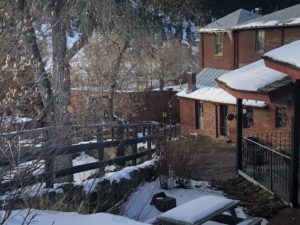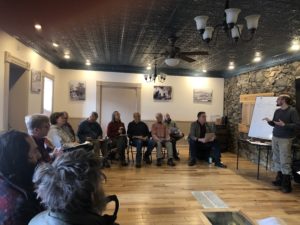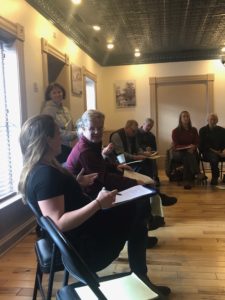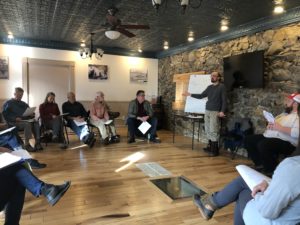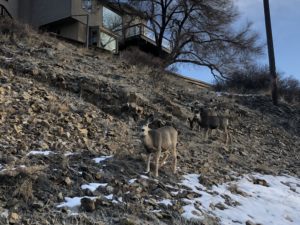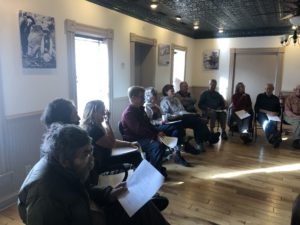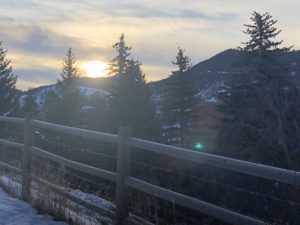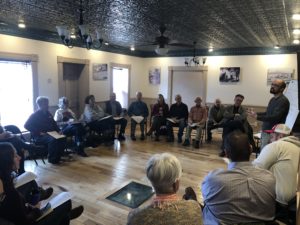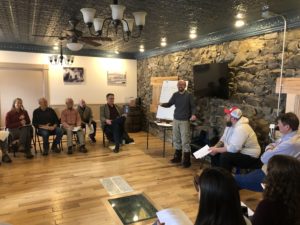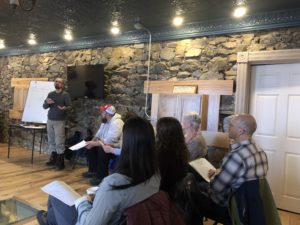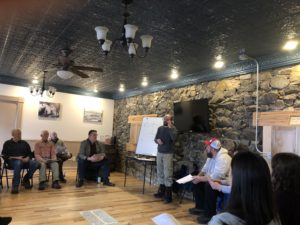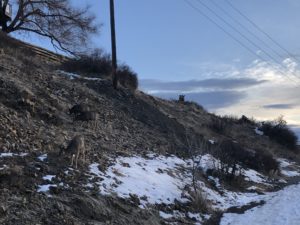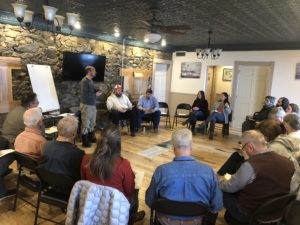[et_pb_section fb_built=”1″ _builder_version=”4.16″ custom_padding=”0|0px|13px|0px|false|false” global_colors_info=”{}” da_is_popup=”off” da_exit_intent=”off” da_has_close=”on” da_alt_close=”off” da_dark_close=”off” da_not_modal=”on” da_is_singular=”off” da_with_loader=”off” da_has_shadow=”on” da_disable_devices=”off|off|off”][et_pb_row _builder_version=”4.16″ background_size=”initial” background_position=”top_left” background_repeat=”repeat” global_colors_info=”{}”][et_pb_column type=”4_4″ _builder_version=”4.16″ custom_padding=”|||” global_colors_info=”{}” custom_padding__hover=”|||”][et_pb_image src=”https://originalsite.merlinccc.com/wp-content/uploads/2019/12/IMG_3018December-2019-WotkshopDecember-2019-Workshop.jpeg” align_tablet=”center” align_last_edited=”on|desktop” _builder_version=”4.16″ z_index_tablet=”500″ global_colors_info=”{}” align_phone=”center”][/et_pb_image][et_pb_text admin_label=”About the Workshop” _builder_version=”4.16″ z_index_tablet=”500″ global_colors_info=”{}”]
This 2½-hour workshop introduced key concepts and arguments from the philosophical traditions of India. Our goals were to dispel some common misconceptions about Indian philosophy and religion, to distinguish different Indian philosophical schools from one another, and to develop a deeper understanding of these rich and varied traditions.
Our central questions included:
- What do “karma” and “dharma” really mean?
- What arguments do Indian philosophers give for reincarnation? What happens to the rest of their teachings if these arguments fail, or we don’t accept reincarnation? And how is reincarnation supposed to work, anyway?
- What do these philosophers have to say about the Gods? What is their relation to the world, to human life, and to the laws of karma? What about the idea that “everything is one”?
- And finally, what can these descriptions of the world tell us about our ethical life, and how to effectively respond to the suffering we face?
We examined concepts that are shared across the various Hindu and Buddhist traditions, as well as those which are explained, defended, or justified quite differently in different philosophical and religious schools. We considered the well-known Vedānta tradition of Hinduism, and the less well-known (but historically very influential!) Hindu schools of Nyāya and Sāṃkhya philosophy, along with a few passing comparisons to Buddhist ideas.
Participants left the workshop with:
- a deeper understanding of karma, dharma, and other important concepts, as they were explained in their original context,
- a “roadmap” for situating different (sometimes agreeing, sometimes conflicting) traditions and movements in Indian philosophy, and
- suggestions for books for further reading, to allow them to take the next steps in exploring any of the traditions discussed.
[/et_pb_text][/et_pb_column][/et_pb_row][/et_pb_section][et_pb_section fb_built=”1″ _builder_version=”4.16″ custom_padding=”2px|0px|0|0px|false|false” global_colors_info=”{}” da_is_popup=”off” da_exit_intent=”off” da_has_close=”on” da_alt_close=”off” da_dark_close=”off” da_not_modal=”on” da_is_singular=”off” da_with_loader=”off” da_has_shadow=”on” da_disable_devices=”off|off|off”][et_pb_row _builder_version=”4.16″ background_size=”initial” background_position=”top_left” background_repeat=”repeat” custom_padding=”0|0px|15.7969px|0px|false|false” global_colors_info=”{}”][et_pb_column type=”4_4″ _builder_version=”4.16″ custom_padding=”|||” global_colors_info=”{}” custom_padding__hover=”|||”][et_pb_divider color=”#02a2c8″ divider_weight=”15″ _builder_version=”4.16″ height=”15px” box_shadow_style=”preset1″ global_colors_info=”{}”]
[/et_pb_divider][/et_pb_column][/et_pb_row][/et_pb_section][et_pb_section fb_built=”1″ _builder_version=”4.16″ custom_padding=”31.5938px|0px|21px|0px|false|false” global_colors_info=”{}” da_is_popup=”off” da_exit_intent=”off” da_has_close=”on” da_alt_close=”off” da_dark_close=”off” da_not_modal=”on” da_is_singular=”off” da_with_loader=”off” da_has_shadow=”on” da_disable_devices=”off|off|off”][et_pb_row _builder_version=”4.16″ background_size=”initial” background_position=”top_left” background_repeat=”repeat” custom_padding=”0|0px|0|0px|false|false” global_colors_info=”{}”][et_pb_column type=”4_4″ _builder_version=”4.16″ custom_padding=”|||” global_colors_info=”{}” custom_padding__hover=”|||”][et_pb_testimonial _builder_version=”4.16″ global_colors_info=”{}”]
Photos
[/et_pb_testimonial][et_pb_text admin_label=”Photo Galleries” _builder_version=”4.16″ z_index_tablet=”500″ global_colors_info=”{}”]
[/et_pb_text][/et_pb_column][/et_pb_row][/et_pb_section][et_pb_section fb_built=”1″ _builder_version=”4.16″ custom_padding=”0|0px|5px|0px|false|false” global_colors_info=”{}” da_is_popup=”off” da_exit_intent=”off” da_has_close=”on” da_alt_close=”off” da_dark_close=”off” da_not_modal=”on” da_is_singular=”off” da_with_loader=”off” da_has_shadow=”on” da_disable_devices=”off|off|off”][et_pb_row _builder_version=”4.16″ background_size=”initial” background_position=”top_left” background_repeat=”repeat” global_colors_info=”{}”][et_pb_column type=”4_4″ _builder_version=”4.16″ custom_padding=”|||” global_colors_info=”{}” custom_padding__hover=”|||”][et_pb_divider color=”#02a2c8″ divider_weight=”15″ _builder_version=”4.16″ height=”15px” box_shadow_style=”preset1″ global_colors_info=”{}”]
[/et_pb_divider][/et_pb_column][/et_pb_row][/et_pb_section][et_pb_section fb_built=”1″ _builder_version=”4.16″ global_colors_info=”{}” da_is_popup=”off” da_exit_intent=”off” da_has_close=”on” da_alt_close=”off” da_dark_close=”off” da_not_modal=”on” da_is_singular=”off” da_with_loader=”off” da_has_shadow=”on” da_disable_devices=”off|off|off”][et_pb_row _builder_version=”4.16″ background_size=”initial” background_position=”top_left” background_repeat=”repeat” global_colors_info=”{}”][et_pb_column type=”4_4″ _builder_version=”4.16″ custom_padding=”|||” global_colors_info=”{}” custom_padding__hover=”|||”][et_pb_testimonial _builder_version=”4.16″ z_index_tablet=”500″ global_colors_info=”{}”]
Resources
(Recommended Texts & Translations)
[/et_pb_testimonial][et_pb_text _builder_version=”4.16″ z_index_tablet=”500″ global_colors_info=”{}”]
Click on the images below to view in pdf format and print out…
[/et_pb_text][et_pb_image src=”https://originalsite.merlinccc.com/wp-content/uploads/2019/12/Karma-to-Dharma_Worksheet-Image.png” url=”https://originalsite.merlinccc.com/wp-content/uploads/2019/12/workshop-handout-Karma-to-Dharma.pdf” align_tablet=”center” align_last_edited=”on|desktop” _builder_version=”4.16″ z_index_tablet=”500″ global_colors_info=”{}” align_phone=”center”][/et_pb_image][et_pb_image src=”https://originalsite.merlinccc.com/wp-content/uploads/2019/12/Cosmology_Karma-to-Dharma-Workshop.png” url=”https://originalsite.merlinccc.com/wp-content/uploads/2019/12/sankhya-chart.pdf” align_tablet=”center” align_last_edited=”on|desktop” _builder_version=”4.16″ z_index_tablet=”500″ global_colors_info=”{}” align_phone=”center”][/et_pb_image][/et_pb_column][/et_pb_row][/et_pb_section][et_pb_section fb_built=”1″ _builder_version=”4.16″ custom_padding=”0|0px|0|0px|false|false” global_colors_info=”{}” da_is_popup=”off” da_exit_intent=”off” da_has_close=”on” da_alt_close=”off” da_dark_close=”off” da_not_modal=”on” da_is_singular=”off” da_with_loader=”off” da_has_shadow=”on” da_disable_devices=”off|off|off”][et_pb_row _builder_version=”4.16″ background_size=”initial” background_position=”top_left” background_repeat=”repeat” custom_padding=”23px|0px|0|0px|false|false” global_colors_info=”{}”][et_pb_column type=”4_4″ _builder_version=”4.16″ custom_padding=”|||” global_colors_info=”{}” custom_padding__hover=”|||”][et_pb_divider color=”#02a2c8″ divider_weight=”15″ _builder_version=”4.16″ height=”15px” box_shadow_style=”preset1″ global_colors_info=”{}”][/et_pb_divider][et_pb_toggle title=”About the Workshop Leader…” _builder_version=”4.16″ z_index_tablet=”500″ global_colors_info=”{}”]
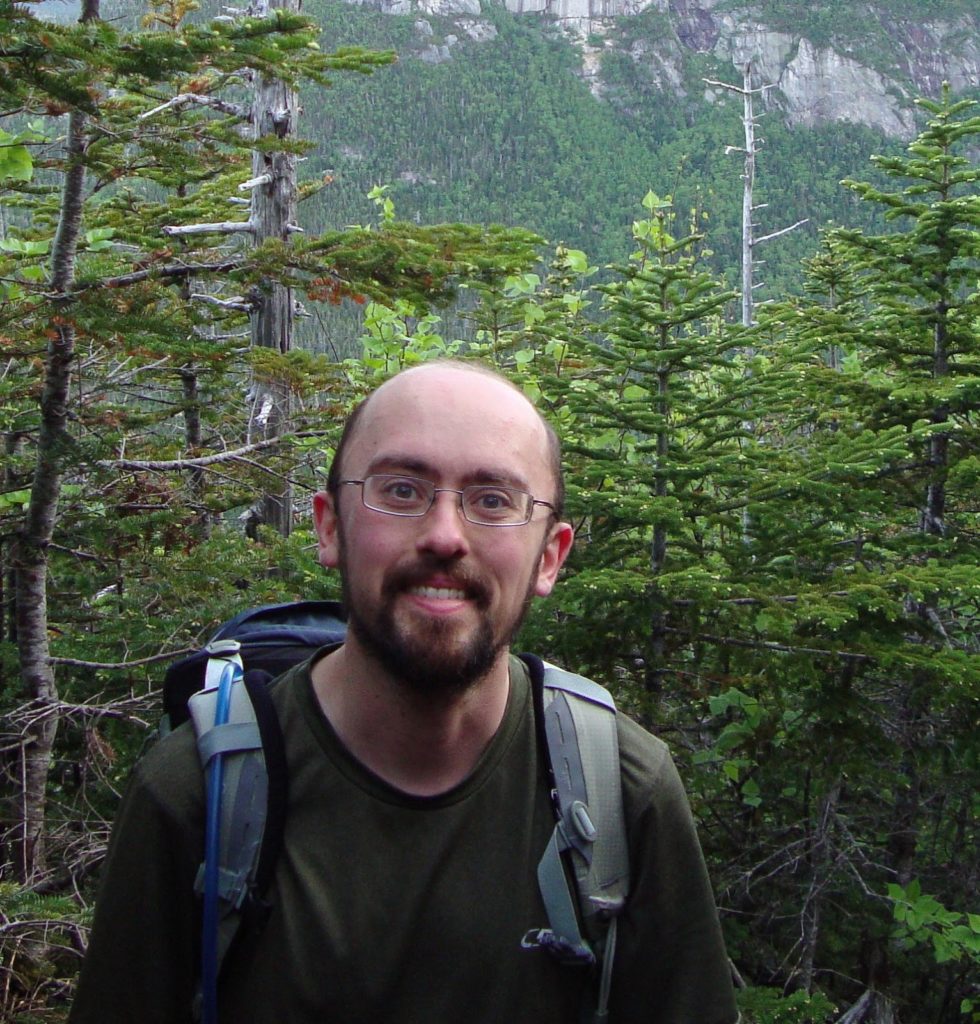
David Nowakowski serves as a Philosophical Advisor & Senior Fellow Mentor and Advisor for Merlin CCC. A lover of philosophy and the great outdoors, David began studying ancient philosophies and classical languages in 2001, and has continued ever since. A scholar of the philosophical traditions of the ancient Mediterranean (Greece, Rome, and North Africa) and of the Indian subcontinent, reading Sanskrit, Latin, and classical Greek, he earned his Ph.D. in philosophy from Princeton University in 2014. His work has appeared in a variety of scholarly journals, including Philosophy East & West, Asian Philosophy, and the Journal of Indian Philosophy; as well as in presentations to academic audiences at Harvard, Columbia University, the University of Toronto, Yale-NUS College in Singapore, and elsewhere.
After half a decade teaching at liberal arts colleges in the northeast, David chose to leave the academy in order to focus his energies on the transformative value of these ancient philosophical and spiritual traditions in his own life and practice, and on building new systems of education and community learning that will make this rich heritage alive and available to people of all ages and backgrounds. A hermit by nature and by committed choice, he balances contemplative solitude with his active work in teaching, counseling, and the healing arts. We are elated to be collaborating with David on our philosophy in the community activities, fellowships, and other Merlin projects.
[/et_pb_toggle][et_pb_divider color=”#02a2c8″ divider_weight=”15″ _builder_version=”4.16″ height=”15px” box_shadow_style=”preset1″ global_colors_info=”{}”][/et_pb_divider][/et_pb_column][/et_pb_row][/et_pb_section][et_pb_section fb_built=”1″ _builder_version=”4.16″ global_colors_info=”{}” da_is_popup=”off” da_exit_intent=”off” da_has_close=”on” da_alt_close=”off” da_dark_close=”off” da_not_modal=”on” da_is_singular=”off” da_with_loader=”off” da_has_shadow=”on” da_disable_devices=”off|off|off”][et_pb_row _builder_version=”4.16″ background_size=”initial” background_position=”top_left” background_repeat=”repeat” global_colors_info=”{}”][et_pb_column type=”4_4″ _builder_version=”4.16″ custom_padding=”|||” global_colors_info=”{}” custom_padding__hover=”|||”][et_pb_testimonial _builder_version=”4.16″ z_index_tablet=”500″ global_colors_info=”{}”]
Thank You’s
[/et_pb_testimonial][/et_pb_column][/et_pb_row][et_pb_row _builder_version=”4.16″ background_size=”initial” background_position=”top_left” background_repeat=”repeat” global_colors_info=”{}” column_structure=”1_2,1_2″][et_pb_column type=”1_2″ _builder_version=”4.16″ custom_padding=”|||” global_colors_info=”{}” custom_padding__hover=”|||”][et_pb_image src=”https://originalsite.merlinccc.com/wp-content/uploads/2016/10/Plato-Logo-1.jpg” align_tablet=”center” align_last_edited=”on|desktop” _builder_version=”4.16″ z_index_tablet=”500″ global_colors_info=”{}” align_phone=”center”][/et_pb_image][/et_pb_column][et_pb_column type=”1_2″ _builder_version=”4.16″ custom_padding=”|||” global_colors_info=”{}” custom_padding__hover=”|||”][et_pb_image src=”https://originalsite.merlinccc.com/wp-content/uploads/2019/05/2018-MIC-Logo-Stacked-2-BLUE-GRADIENT-Blue-Text-.png” align_tablet=”center” align_last_edited=”on|desktop” _builder_version=”4.16″ z_index_tablet=”500″ global_colors_info=”{}” align_phone=”center”][/et_pb_image][/et_pb_column][/et_pb_row][et_pb_row _builder_version=”4.16″ background_size=”initial” background_position=”top_left” background_repeat=”repeat” global_colors_info=”{}”][et_pb_column type=”4_4″ _builder_version=”4.16″ custom_padding=”|||” global_colors_info=”{}” custom_padding__hover=”|||”][et_pb_text _builder_version=”4.16″ z_index_tablet=”500″ global_colors_info=”{}”]
Thank you to P.L.A.T.O. (Philosophy Learning and Teaching Organization) and Montana Internet for helping support our philosophy in the community programs and making events like this possible!
[/et_pb_text][et_pb_divider color=”#02a2c8″ divider_weight=”15″ _builder_version=”4.16″ height=”15px” z_index_tablet=”500″ box_shadow_style=”preset1″ global_colors_info=”{}”][/et_pb_divider][/et_pb_column][/et_pb_row][/et_pb_section]

